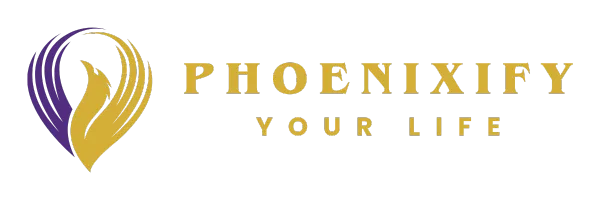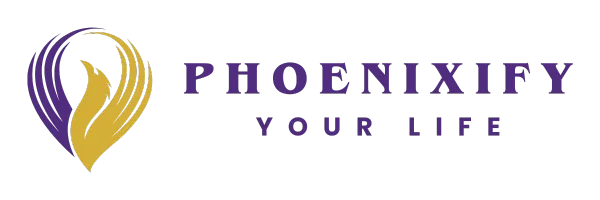Our Latest Posts

How Gen Z is Rewriting the Rules of Financial Freedom in Their 20s
Financial freedom used to be considered a long-term goal, something to aim for decades into adulthood. But Gen Z has taken a different approach. Born between 1997 and 2012, this generation has been shaped by a global pandemic, rapid technological shifts, student debt realities, and an unpredictable job market. Instead of following outdated blueprints, they’re building their own.
Here's a closer look at the key behaviors, tools, and decisions that are helping Gen Z redefine what financial freedom looks like — and how they're getting there faster than any generation before them.
1. Multiple Income Streams Are the Norm
Side hustles aren't side projects anymore. From freelancing on platforms like Upwork to selling digital products or managing drop-shipping stores, Gen Z is stacking income streams with intent. They’re not relying on a single 9-to-5 — they’re building diversified earning systems early.
Passive income, gig work, affiliate marketing, and content creation are all part of this toolkit. What sets them apart is their digital fluency: they know how to turn clicks into cash and hobbies into businesses.
2. Early Investing and Crypto Literacy
This generation didn’t wait until their 40s to learn about the stock market. Many Gen Z investors began their financial education through apps like Robinhood, Public, or Webull. They’re also more crypto-aware than previous generations — not necessarily putting all their money into it, but understanding it as a new class of digital asset.
Thanks to TikTok and YouTube creators who break down finance topics in under 60 seconds, financial literacy has become more accessible than ever. While not every move is a win, the confidence to start early gives them a head start.
3. Financial Education Through Social Media
Traditional schooling rarely dives deep into personal finance. Gen Z figured that out fast. Instead of waiting for formal education, they’ve taken to learning via creators, podcasts, Reddit forums, and finance YouTube channels.
They follow creators who offer transparent breakdowns of budgeting, debt payoff strategies, and investing tips. This content is short, relatable, and focused on real-life application — a huge shift from textbooks and lectures.
4. Minimalist Lifestyles and Mindful Spending
Rather than over-consuming or chasing trends, many Gen Z adults are leaning into minimalist spending habits. Thrifted clothes, secondhand furniture, and experiences over material goods are part of their financial philosophy.
Apps that track spending, automate savings, and offer round-up investment features make it easier to stay conscious of daily habits. While previous generations often associated success with visible wealth, Gen Z places more value on financial flexibility and time freedom.
5. Remote Work as a Financial Strategy
Location independence has changed the game. Many Gen Z workers are rejecting expensive city life in favor of remote-friendly, lower-cost destinations. By cutting living expenses without sacrificing income, they gain more room for saving, investing, or starting a business.
Freelance platforms, digital nomad visas, and online certifications give them flexibility to grow their income without being tied to traditional office roles.
6. Mental Health and Financial Health Go Hand-in-Hand
Gen Z is more open about mental health than previous generations — and that includes how money affects stress. Financial freedom isn’t just about buying power. It’s about peace of mind, flexibility, and not living paycheck to paycheck.
Simple daily rituals like sipping calming tea or blocking out tech-free time are becoming part of their routines to support clearer decision-making. If you're looking for a great place to start, The Tea Shelf offers an excellent range of teas designed to help you reset, focus, and feel grounded.
7. They’re Saying No to Traditional Debt
Student loans and credit card debt are viewed with more skepticism than ever. Gen Z is seeking alternative education models, including bootcamps, online certifications, or learning through work experience. They’re also more cautious with credit, often seeking to build scores strategically rather than spending for status.
Many avoid large monthly payments by choosing budget cars, avoiding unnecessary subscriptions, and renting with roommates longer to build cash reserves faster.
8. Community and Transparency Over Competition
Gen Z is building their wealth in public. They share debt payoffs, investing milestones, side hustle income reports, and even financial mistakes online. This transparency builds community and lowers the barrier for others to start.
Rather than competing to look wealthier, they’re connecting through shared goals. It’s not about showing off. It’s about showing what’s possible.
Gen Z’s approach to financial freedom is fast, flexible, and unapologetically future-focused. By choosing to learn early, spend with purpose, and use the digital tools at their fingertips, they’re reshaping what it means to be in control of your finances.
And if you need a grounding habit to go along with your budget spreadsheet or crypto portfolio, sip something calming from The Tea Shelf. Small rituals support clearer thinking — and clearer thinking leads to smarter financial moves.
One or more of the links above are affiliate links, meaning, at no additional cost to you, we will earn a slight commission if you click through and make a purchase. Each of these products is chosen by a trusted member of our team.
Get In Touch!
Email:
partnerships@phoenixifyyourlife.com
Find us on Social Media:
@PhoenixifyYour Life

